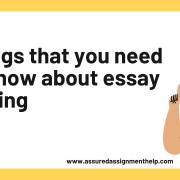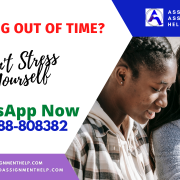Introduction
Individual learning has been considered a procedure that is involved in changing one’s knowledge or behavior (Novarese 2012). The learners could learn about the new information or find out new strategies to develop their skills in various situations. Coaching always has been recognized to play a vital role within the education department. The mentor is always required at every stage of the education sector to guide the students whereas coaching creates an atmosphere for the people in which they could learn something along with their curiosity. Teaching is required on a subject-knowledge basis to share their knowledge with their students effectively. This report writing is more significant to understanding the different kinds of responsibilities and roles of mentor, coach, and teacher. This case study report will describe how coaching, mentoring, and teaching impact the three learners such as Cassie, Aran, and Lissa. Cassie is a single parent of 3 children in Britain and is 36 years old. Recently, she has suffered from depression after losing her mother. Now, gradually she is accepting life as challenging for Dyslexic and recovering from alcoholic habits that impact her academic capability based on the course work program with 60% attendance. Aran is a gifted student from Asia in the academic domain but at 17 years aged with 45% attendance. He is connected with a gang at present for selling drugs. Nowadays, his relationships with his family are now toxic. But he has initiated drinking alcohol, although when Aron has submitted his task to achieve a distinction level. Lissa is from the African Caribbean and has achieved grades from “A* up to B along with 100% attendance at 18 years of age. But she feels bored during the sessions. Lissa also has talked about her experiences and additional activities through her tutorial sessions. She wants to focus on her studies and business along with progressing in the University.
Task 1: Report
1.0 Understanding the responsibilities and roles
1.1 Relationship with the responsibilities to individual working students
Coach:
One coaching can develop the existing skills to enhance the confidence for the learners’ long-term focus. Moreover, coaching can teach their students to gain something from a procedure. Coaching is mostly required to grasp the practices more than familiarity at a higher level along with the profession (Callahan 2016). Sometimes, it can be found that the coach can have the students for something they are responsible for preferring to complete in class.
Mentor:
Mentor shares their knowledge and experiences with their students for the development of long-term focus which will prepare the students for future purposes. One mentor has particular roles in the personnel business development but has different approaches, outcomes, and skills depending upon the career or professional basis.
Teacher:
Teaching has been recognized as a common practice mostly for civilians. Teaching is mainly required for schooling purposes and also for degree level particularly. Therefore, one tutor should know the basis of subject matters and teaching procedures. Moreover, the teacher is required to support the uncertainty within their students including detailed pieces of information.
1.2 Different roles in individual working learners
Coaching
One coach can motivate his or her students or learners towards particular goals for achieving success. Furthermore, coaching could help determine or establish the goal in a manner along with the planning. Within the individual working learners, coaching teaches how to execute in the selling area because in sales execution is crucial (Schultz 2018). Learners would be engaged in the selling sector mostly and accomplished while the learners would be held accountable regarding their planning of activities. A professional coach always finds out the best quality that could be developed as much as possible within his or her learners. The learners can improve their growth and develop their skills (Whitmore 1996). The coach can give recommendations regarding the reasons to their learners as well as provide instruction and support.
Mentoring
One mentor can offer the students ideas and expertise. Mentoring would help encourage resilience and self-belief (Washington.edu. 2019). Mentorship can also act as a vital friend and provide guidance. Mentoring is helpful for the students to understand the business’s essential behaviors and character traits. Therefore, mentors can broaden their student’s horizons by inspiring and listening (EmployabilityUK. 2022).
Teaching
Teachers can deliver, prepare, and plan the lessons for school learners. Moreover, they can encourage the students to participate in the lessons and other school-associated activities additionally (Calaby 2019). The tutor also supports the team members in leadership positions during the implementation of the development planning of the school. Therefore, they also provide social and educational guidance for their students to sign in the special subject areas as recommendations regarding their requirements. Sometimes, the teacher collaborates with carers, support workers, guardians, parents, and also other professionals to ensure and safeguard the educational basis welfare. Furthermore, teachers follow the guidelines regarding the national curriculum in their subject specialist fields.
1.3 Effective roles of coaching, mentoring, and teaching in introducing individual learning
Cassie:
- Coaching
The coach should nourish the existing academic skills Cassie along with practicing their reading skills regularly due to dyslexia.
- Mentoring
The mentor should help Cassie improve her knowledge through the coursework program due to her gap year after leaving school when she was 16 years old.
- Teaching
The tutor should provide the social and educational guidance to sign in the special subject areas as recommendations regarding her requirements.
Aran:
- Coaching
The coach should focus on their capabilities of Aran in the academic domain along with giving the tasks regularly to engage him so that they can move from his gang (Cooks-Campbell 2021).
- Mentoring
The mentor should transmit his or her knowledge and other experiences to Aran for leaving the habits of drinking alcohol and about the impacts of selling drugs culture and deteriorating situations.
- Teaching
Teachers should make the proper guidelines on the lessons and attendance within the coursework session.
Lissa:
- Coaching
The coach should find out the reasons for the boringness of Lissa and also train her in the selling domain for Lissa’s own business.
- Mentoring
The mentor should inform her about the conditions of the current marketplace to establish Lissa’s business besides her academic career.
- Teaching
The teacher should guide her academic career regarding the particular subject matters to progress in her academic scores for better in the University.
Task 2: Reflective Report
2.0 Understanding the Strategies
2.1 Strategies for the requirements of individual students
Cassie:
Cassie should make the habits of reading with proper pronunciation and speaking. She should memorize her previous lessons. Moreover, she has to focus on the different types of story books and magazines on health and well-being. Not only that Cassie must listen to the news of scientific or comics or others from where she can follow the proper pronunciation and also academic basis videos to practice the spelling and reading. I can say that I would be able to improve strategically.
Aran:
Aran should establish his goal and focus on the various kinds of academic basis projects within the classroom. He has to engage with teamwork in group projects for academic purposes in a good environment. I can self-improve through this process.
Lissa:
Lissa should plan to manage the time to focus on her own business and studies. She should follow the different kinds of activities to gain knowledge of current marketplace conditions as well as concern about her education in the University through discussion with others and collection of pieces of information.
3.0 Understanding an approach of multi-agency to progress individual students
Multi-agency working approach is helpful for challenging young people or children who are faced with problems in establishing educational goals in positive ways (Rosier et al. 2021). This type of work has been considered as responding seamlessly to individuals including complex and multiple requirements under a multidisciplined team basis.
3.1 The requirement of resources for the multi-agency approach effectively
Cassie:
I think Cassie should remain in the collaborative and supportive classroom culture. She must utilize multisensory activities and input (Cheminais 2008). The coach should notice the learner’s choice to be more engaged and during reading well-maintained pronunciation. Regular assessments on the reading skills of Cassie are required (Blue 2021).
Aran:
Aran should have requirements for residential treatment-based programs including group and individual therapy, educational lectures, activity therapy, support groups, and family involvement along with a psychological evaluation.
Lissa:
Lissa should be involved with multimedia activities that can encourage her in the group work tasks through which she could express her knowledge in different ways, revise her work, solve problems, and build her knowledge.
3.2 Influencing factors for the referral procedure
For Cassie, Dyslexia, academic capability, gap year, her three children, and alcoholic habits can influence the referral procedure. Aran is gifted and has distinct scorers in academic areas, but engagement with drug-selling gangs and toxic relationships with his family are the main influencing factors (Akbari-Sari et al. 2021). Lissa feels bored during the coursework program sessions but wants the experience and additional activities through tutorial sessions including targets on her studies and business.
4.0 Understanding the contribution to the progression of individual students
4.1 Review procedure for students
Emotional benefits
Coaching
- Cassie
The coach may help Cassie with using nonverbal cues and expressive language to facilitate her thoughts during reading to understand the meaning of lines (THE Campus Learn, Share, Connect. 2022).
- Aran
The emotional intelligence of the coach may be helpful for Aran to enhance self-awareness, self-motivation toward his progress positively, and social responsibilities for his family (www.kornferry.com. 2022).
- Lissa
The coach may help Lissa communicate effectively with her business clients, and also how to manage her relationships as well as self-management and social awareness (Brennand Bsc 2022).
Mentoring
- Cassie
The emotional intelligence of mentoring can help Cassie to develop reading actions and thoughts resulting in her learning awareness being developed in better advance.
- Aran
Mentoring can help with emotional intelligence Aran develops his social skills and enhances his emotions positively towards his family.
- Lissa
The mentoring group obviously can help with emotional intelligence Lissa to understand how to increase productivity along with better managing her valuable time, work-life balance, confidence, and self-esteem (Bierema 2015).
Teaching
- Cassie
The teacher can emotionally influence Cassie to develop her cognitive skills like memory, critical thinking, and attention during reading and learning something.
- Aran
The emotional intelligence of a tutor can help Aran to make the decision for a better future life, solve problems with others, and self-regulate.
- Lissa
A tutor can guide and help Lissa with emotional intelligence for executive function, increasing productivity, self-regulation, good communication skills, critical thinking, and deciding to solve a problem.
Intellectual benefits
Coaching
- Cassie
Coaching may help Cassie to leave her alcohol habits and develop her learning and other social activities-based skills.
- Aran
Coaching may help Aran how to improve effectively his mental health condition and personal development from his critical situations (Eatough 2021).
- Lissa
Lissa may be helpful by coaching to understand her positive work performance, wellness, and self-confidence that may impact her own business and study at university.
Mentoring
- Cassie
Mentoring the relationship with Cassie can intellectually help Cassie to handle her mental health issues like dyslexia for which she can enhance her self-confidence during the coursework session program.
- Aran
The mentoring relationship with Aran can intellectually help Aran to leave his gang of drug selling as well as handle his mental condition or depression to recover a better relationship with his family (youth.gov. 2022).
- Lissa
The intellectual mentoring relationship of Lissa can help Lissa to reduce the stress in her academic study and own business. Further, she can focus on her session and activity tasks (Cronin 2022).
Teaching
- Cassie
Intellectually teachers can improve Cassie’s reading performance and overall effectiveness.
- Aran
A tutor can intellectually motivate Aran to attend the class to be involved in education.
- Lissa
The teacher can intellectually develop coping skills and critical thinking within Lissa.
Social benefits
Coaching
- Cassie
Coaching helps Cassie to enhance and support her empowerment and validity in an organization.
- Aran
The coach may help Aran to increase his employee involvement in the future along with better performance.
- Lissa
Coach might help Lissa to keep her employee basis highly committed along with deep learning, and improvement of her performance in her business organization.
Mentoring
- Cassie
Cassie can enhance self-confidence and self-esteem through mentoring.
- Aran
Aran can build a better strong relationship with his family good behavior and communication.
- Lissa
Lissa can enhance her productivity along with proper time management.
Teaching
- Cassie
Teaching can help to improve communication skills through the reading process (Southampton.ac.uk. 2012).
- Aran
Teaching can help to develop self-awareness and social skills.
- Lissa
Teachers can help to improve cooperative teamwork and other additional skills like business communication skills and social skills (Leon-Henri 2020).
Task 3: Action Planning and Reflective Report
5.0 Evaluation of own practice during learning and one-to-one teaching situation
5.1 Reflective report
Cassie
| Experience | I have gained experience in various types of learning processes |
| Description | Learning processes were offline and online with practical |
| Feelings | I felt that this coursework session would be helpful for me |
| Evaluation | I was comfortable in both offline and online mode learning sessions |
| Analysis | During online mode, I could get my family, and offline mode I could spend time with my other classmates. |
Aran
| Experience | During the learning session, I was challenged to get a distinction in my academic career. |
| Description | I was not a regular attendant to spend more time on my education. |
| Feelings | After a certain time for my mental relaxation, I spent time with some people. |
| Evaluation | At starting the friendship this group was good but gradually the situation became bad |
| Analysis | In the initial stage, I got mental relief sometimes with time spent and then they approached me for selling drugs illegally then I knew about their activities. |
Lissa
| Experience | I was a regular attendant in the University to achieve a better position of gradation. |
| Description | Always I want to improve my academic career at the University |
| Feelings | I felt the need for money to continue my academic career and had requirements for other skills and knowledge |
| Evaluation | Besides my education, I established my own business to earn money to spend on my academic sessions. |
| Analysis | These feelings were helpful for me to go in the forward direction. |
5.2 Identify your weaknesses and strengths
Cassie
| Strong points | Weak points |
| Having the academic capability to achieve course program, 60% attendance | Recovering alcoholic habits, Dyslexic problems. |
Aran
| Strong points | Weak points |
| Academically getting distinction and gifted student | 45% attendance, toxic relationship with his family, join with drug selling gang |
Lissa
| Strong points | Weak points |
| 100% attendance, willing to learn additional activities and progress in an academic career, focus on her studies and business. | Feels bored during coursework sessions. |
5.3 Action plan for own skills improvement
Cassie
| Measurable indicators | Proper reading |
| Attainable | Daily practicing the reading learning new words, and memorizing these. |
| Relevant | To develop better communication skills and engagement in cultural society |
| Time | From 6 to 8 months |
Aran
| Specific goals | To enhance self-awareness, social responsibility, and self-management |
| Measurable indicators | Leave the bad gang and alcoholic habits, build a good relationship with family |
| Attainable | To engage with my academic tasks or projects or social activities develop good communication skills and properly judge during decision making. |
| Relevant | It is required for a better future career. |
| Time | From 2 to 3 months |
Lissa
| Specific goals | To progress my academic career and my business activities with other additional skills. |
| Measurable indicators | To keep my good attendance, improve my academic scores, and business profits |
| Attainable | Leave my boring feelings during coursework sessions, and properly find out the reason for boring. Developing other additional and relevant needful skills. |
| Relevant | It is required to focus on the coursework session with interest and encouragement. |
| Time | From 1 to 2 months |
Conclusion:
It could be said that this case study report would be helpful for these 3 learners for their better achievement in the future. This report has demonstrated the SMART objectives as action planning, strong points, and weak points, and how mentoring, coaching and teaching help them during coursework sessions to achieve success through emotional, intellectual, and social perspectives.
Reference List
Blue, J. 2021. Ten ways to support learners with dyslexia | Cambridge English. [online] www.cambridgeenglish.org. Available at: https://www.cambridgeenglish.org/blog/ten-ways-to-support-learners-with-dyslexia/.
Brennand Bsc, S. 2022. The Importance of Emotional Intelligence in Coaching. [online] Available at: https://www.activederbyshire.org.uk/uploads/emotional-intelligence.pdf.
Calaby, L. 2019. Teacher job description | Totaljobs. [online] Totaljobs. Available at: https://www.totaljobs.com/advice/teacher-job-description.
Cheminais, R. 2008. The Benefits and Challenges of Collaborative Multi-Agency Working. [online] Available at: https://www.sagepub.com/sites/default/files/upm-binaries/25241_02_Cheminais_Ch_02.pdf.
Cooks-Campbell, A. 2021. Benefits of coaching: Purpose, clarity, and passion in daily life. [online] www.betterup.com. Available at: https://www.betterup.com/blog/benefits-of-coaching.
Cronin, N. 2022. The Positive Impact of Mentoring on Mental Health | Guider. [online] www.guider-ai.com. Available at: https://www.guider-ai.com/blog/the-impact-of-mentoring-on-mental-health#:~:text=Mentoring%20relationships%20are%20a%20safe.
Eatough, E. 2021. How Coaching Improves Mental Health: New Research from BetterUp. [online] www.betterup.com. Available at: https://www.betterup.com/blog/coaching-improves-mental-health-research#:~:text=An%20investment%20of%20time%20and [Accessed 4 Jun. 2022].
EmployabilityUK. 2022. Mentoring Programme. [online] Available at: https://www.employabilityuk.org/about-us/mentoring-programme/?gclid=CjwKCAjw1ZbaBRBUEiwA4VQCIdKdZ8xOI6K9SuCQgwXfBWzGuYTvhJzulLQ2HGF8qD61Vac-j4PW2xoCbNEQAvD_BwE.
Leon-Henri, D.D.P. 2020. 12 Benefits of Reflective Teaching and Learning. [online] Reflective Teaching Journal. Available at: https://reflectiveteachingjournal.com/benefits-of-reflective-teaching/.
Novarese, M. 2012. Individual Learning. Encyclopedia of the Sciences of Learning, [online] pp.1532–1535. doi:10.1007/978-1-4419-1428-6_291.
Opengart, R. and Bierema, L. 2015. Emotionally Intelligent Mentoring. Human Resource Development Review, 14(3), pp.234–258. doi:10.1177/1534484315598434.
Schultz, M. 2018. 5 Coaching Roles You Need to Fill When Selecting Your First-Round Sales Manager. [online] Entrepreneur. Available at: https://www.entrepreneur.com/article/312445.
Seyed-Nezhad, M., Ahmadi, B. and Akbari-Sari, A. 2021. Factors affecting the successful implementation of the referral system: A scoping review. Journal of Family Medicine and Primary Care, [online] 10(12), pp.4364–4375. doi:10.4103/jfmpc.jfmpc_514_21.
Southampton.ac.uk. 2012. The benefits of a mentoring relationship | Professional Development | University of Southampton. [online] Available at: https://www.southampton.ac.uk/professional-development/mentoring/benefits-of-a-mentoring-relationship.page.
THE Campus Learn, Share, Connect. 2022. Emotions and learning: what role do emotions play in how and why students learn? [online] Available at: https://www.timeshighereducation.com/campus/emotions-and-learning-what-role-do-emotions-play-how-and-why-students-learn.
Tieperman, J. and Rosier, S. 2021. 14 Effective Ways to Meet the Individual Needs of Students. [online] wikiHow. Available at: https://www.wikihow.com/Meet-the-Individual-Needs-of-Students.
Washington.edu. 2019. What is the role of a mentor? | DO-IT. [online] Available at: https://www.washington.edu/doit/what-role-mentor.
Whitmore, J., 1996. Coaching for performance. N. Brealey Pub. [Available at: https://cltr.nl/wp-content/uploads/2020/04/John-Whitmore-Coaching-for-Performance.2.0.pdf]
www.kornferry.com. 2022. 4 Emotional Intelligence Skills for Handling Crises. [online] Available at: https://www.kornferry.com/insights/this-week-in-leadership/emotional-intelligence-skills-coronavirus-leadership.
youth.gov. 2022. Benefits of Mentoring for Young People | Youth.gov. [online] Available at: https://youth.gov/youth-topics/mentoring/benefits-mentoring-young-people#:~:text=Enhanced%20self%2Desteem%20and%20self [Accessed 4 Jun. 2022].











